The most powerful nation in the history of the world
Neither getting too close to the ocean nor the sun

“We’re the United States of America for God’s sake, the most powerful nation in history. Not in the world, in the history of the world,” Biden said on 60 Minutes when asked if we could support Ukraine and Israel at the same time.
“We can take care of both of these and still maintain our overall international defense.”
Well that certainly isn't the type of hubris you typically hear directly before a surprising comeuppance.
"Haha look at me flying dad! Neither getting too close to the ocean nor the sun," he said. "And the best part is I never will lol."
Treasury Secretary Janet Yellen echoed Biden's remarks.
"America can certainly afford to stand with Israel and to support Israel's military needs and we also can and must support Ukraine in its struggle against Russia."
Sorry for a real quick tangent here. The American Journal of Public Health studied data on 437,596 medical GoFundMe campaigns in the U.S. between 2016 and 2020. Around $2 billion was raised in that timespan for Americans' medical needs although the distribution of that money wasn't exactly equal they found. In 2020 the campaigns "raised substantially less money in areas with more medical debt, higher uninsurance rates, and lower incomes."
"Despite its popularity and portrayals as an ad-hoc safety net, medical crowdfunding is misaligned with key indicators of health financing needs in the United States" they concluded.
"It is best positioned to help in populations that need it the least."
They also said – and I found this detail particularly heartbreaking – that in 2020 only 12% of campaigns met their goals.
16% of them received no money at all.
Imagine that. Getting sick or injured and asking for help and being met with stone cold silence and indifference.
Well of course you can imagine it you're an American.
The great Wallace Shawn appeared at a protest in front of the White House yesterday.
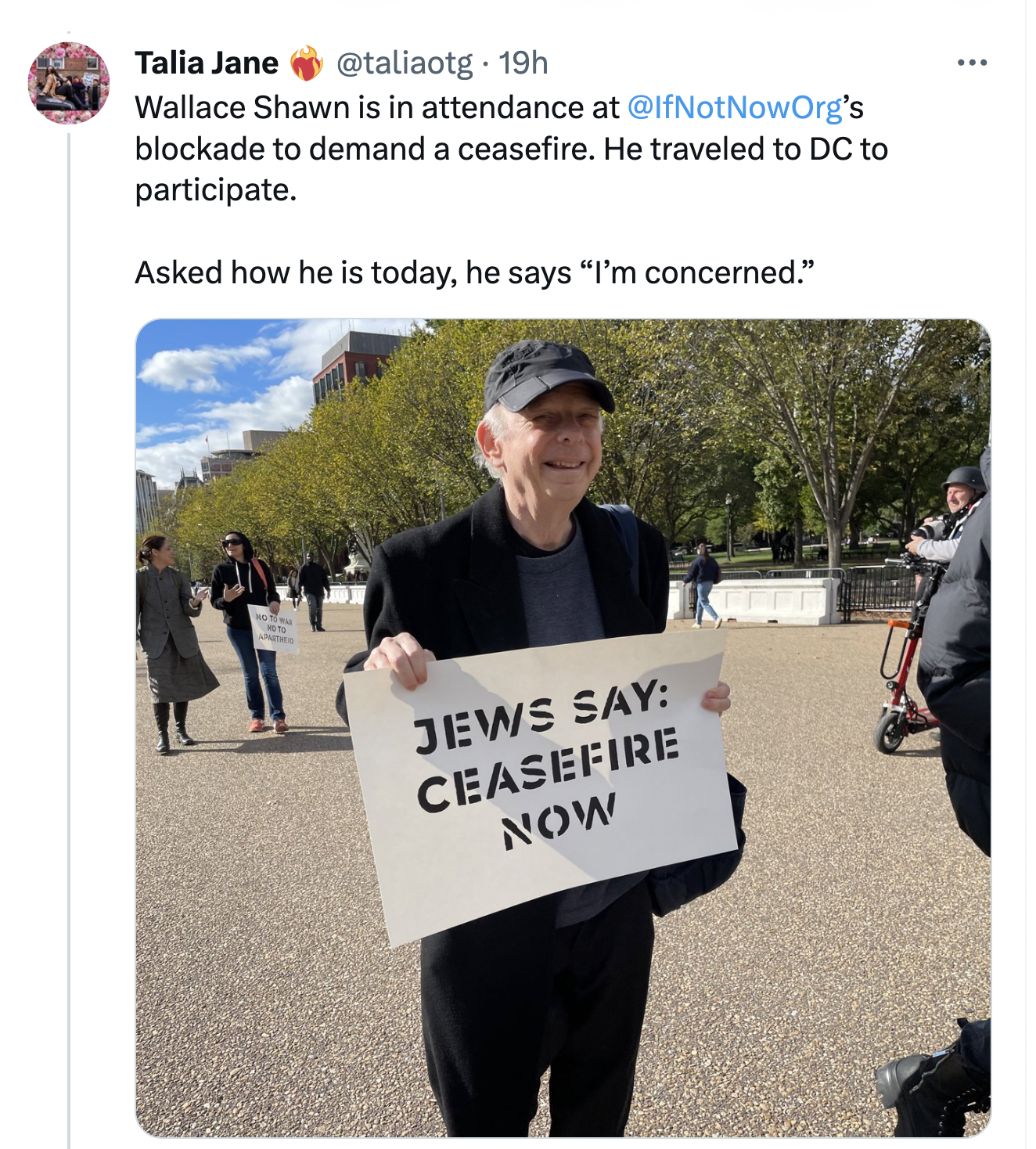
He had this to say:
"I think we're all here because we don't believe in massacring innocent people. Personally, I don't really believe in massacring any innocent people. Obviously, like anyone who is Jewish, millions of my relatives have been massacred. You would think that would teach everybody from that background that this is a tragedy that should be avoided, that hatred against particular groups is wrong. Many people don't seem to have picked that up. What's happening right now is certainly one of the most deliberate cruelties inflicted on a group of people that I can remember, and that my own government supported. Even in Vietnam there was a whole elaborate explanation that people gave, and they didn't quite admit they were slaughtering the innocent. This is very deliberate. I also don't really believe in revenge, and that's what this is."
I mention it because Shawn has long been a fierce and clear-eyed writer about injustice. His 1991 piece The Fever which I shared in here a couple of years ago is always relevant but particularly so right now.
It goes in part like this:
We need the poor. Without the poor to get the fruit off the trees, to tend the excrement under the ground, to bathe our babies on the day they're born, we couldn't exist. Without the poor to do awful work, we would spend our lives doing awful work. If the poor were not poor, if the poor were paid the way we're paid, we couldn't afford to buy an apple, a shirt, we couldn't afford to take a trip, to spend a night at an inn in a nearby town. But the horror is that the poor grow everywhere, like moss, grass. And we can never forget the time when they owned the land. We can never forget the death of their families, those vows of revenge screamed out in those rooms that were running with gore. And the poor don't forget. They live on their rage. They eat rage. They want to rise up and finish us, wipe us off the earth as soon as they can.
And so in our frozen world, our silent world, we have to talk to the poor. Talk, listen, clarify, explain. They want things to be different. They want change. And so we say, Yes. Change. But not violent change. Not theft, not revolt, no revenge. Instead, listen to the idea of gradual change. Change that will help you, but that won't hurt us. Morality. Law. Gradual change. We explain it all: a two-sided contract: we'll give you things, many things, but in exchange you must accept that you don't have the right just to take what you want. We're going to give you wonderful things. Sit down, wait, don't try to grab— The most important thing is patience, waiting. We're going to give you much much more than you're getting now, but there are certain things that must happen first—these are the things for which we must wait. First, we have to make more and we gave to grow more, so more will be available for us to give. Otherwise, if we give you more, we'll have less. When we make more and we grow more, we can all have more—some of the increase can go to you. But the other thing is, once there is more, we have to make sure that morality prevails. Morality is the key. Last year, we made more and we grew more, but we didn't give you more. All of the increase was kept for ourselves. That was wrong. The same thing happened the year before, and the year before that. We have to convince everyone to accept morality and next year give some of the increase to you.
So we all have to wait. And while we're waiting, we have to be careful. Because we know you. We know there are some who are the violent ones, the ones who won't wait. These are the destroyers. Their children are dying, sick—no medicine, no food, nothing on their feet, no place to live, vomiting on the streets. These are the ones who are drunk with rage, with their lust for revenge. We know what they've planned. We've imagined it all a thousand times. We imagine it every single day. The sound at the door—that odd “crack”—the splintering sound—then they break through the lock and run in yelling, pull us up from where we're gathered at the family table, having our meal, pull our old parents out from the bathroom, pull the little ones up from their beds, then they line us all up together in the hall, slap us, kick us, curse us, scream at us, our parents bleeding our children bleeding, pulling the children's clothes from the closets, the toys from the shelves, ripping the pictures off the walls. What will they do to us? we ask each other. What?—are they giving all the homes to people who now are living in the streets?
This is some of the most evil shit I have ever read in my life. Look at this shit.
"An adviser to the wife of Israeli Prime Minister Benjamin Netanyahu shocked many on Saturday after posting a violent rant on social media in which she fantasized about torturing to death residents of Gaza she said were involved in last weekend's killings in southern Israel," Middle East Eye reported. Here's the post in question.
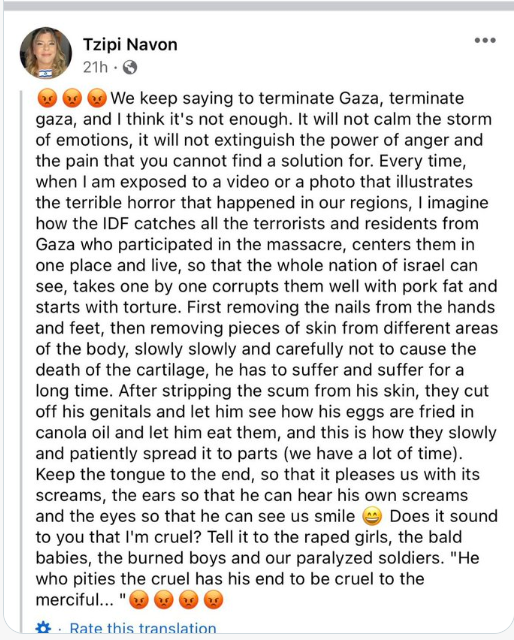
My fucking god.
Good news though because it turns out "there is no humanitarian crisis” in Gaza after all. At least not according to Israel’s ambassador to the UK.
Kay Burley: "Whats the view on the humanitarian crisis in Gaza this morning?"
— Saul Staniforth (@SaulStaniforth) October 16, 2023
The Israeli ambassador to the UK: "There is no humanitarian crisis..."
"There isn't?"
"There isn't" pic.twitter.com/mvLIHHtTST
Here are some other less evil things worth reading on the matter.
Dissent

One way of understanding Israel that I think should not be controversial is to say that it is a machine for the conversion of grief into power. The Zionist dream, born initially from the flames of pogroms and the romantic nationalist aspirations so common to the nineteenth century, became real in the ashes of the Shoah, under the sign “never again.” Commemoration of horrific violence done to Jews, as we all know, is central to what Israel means and the legitimacy that the state holds—the sword and shield in the hands of the Jewish people against reoccurrence. Anyone who has spent time in synagogues anywhere in the world, much less been in Israel for Yom HaShoah or visited Yad Vashem, can recognize this tight linkage between mourning and statehood.
This, on reflection, is a hideous fact. For what it means is that it is not possible to publicly grieve an Israeli Jewish life lost to violence without tithing ideologically to the IDF—whether you like it or not.
Protean Mag/The Institute for Palestine Studies have been publishing a series of letters from inside Gaza:

A poignant and heartfelt Rob Delaney for Tribune:

I think I am saying that Jewish and Muslim ghosts guided me better during my time of greatest pain than today’s presidents and prime ministers and newspaper owners are guiding us today.
They profane the memory of those killed and those to be killed.
I do not anticipate these new ghosts being kind with them.
The Nation on Democrats waffling on support for the bombing:
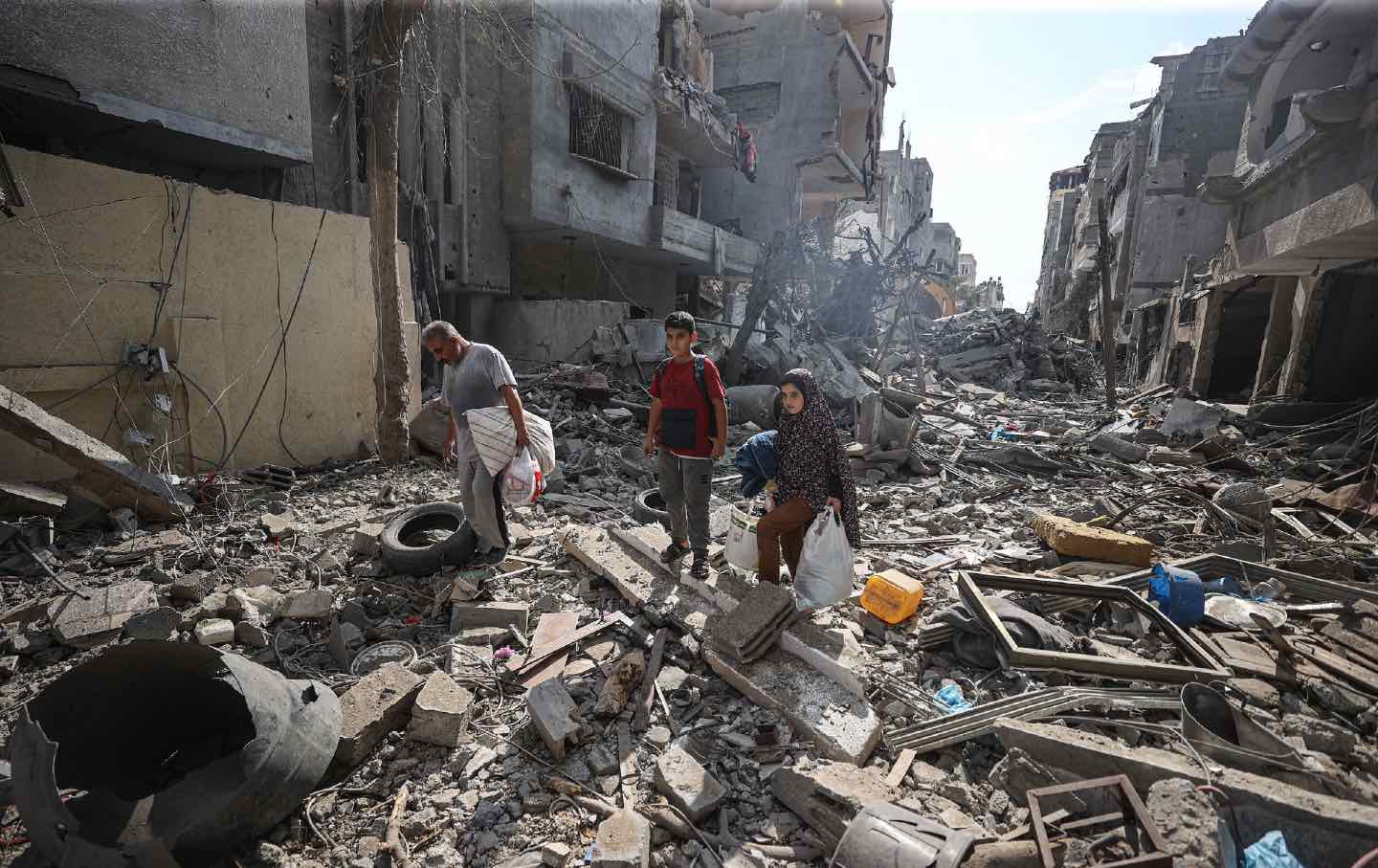
These Bomb Nicer statements are more watered down than that of House progressives. They don’t call for an end to the Israeli government’s bombing campaign, blockade, or collective punishment. They rely on process criticisms that demand the Israeli government carry out its potential war crimes with more grace and charity. “Deep concerns,” “minimize civilian harm,” “comply with international law”—they ask for nothing that is actionable. The mode is one of a passive spectator, an observer like an Amnesty International volunteer with a clipboard, rather than a sitting US senator with a direct line to the most powerful person on Earth. Nothing specific is being asked, only that we all sort of watch and look Deeply Concerned and take the mass death down from a 10 to an 8.5.
Jewish Currents on genocide:

Israel’s campaign to displace Gazans—and potentially expel them altogether into Egypt—is yet another chapter in the Nakba, in which an estimated 750,000 Palestinians were driven from their homes during the 1948 war that led to the creation of the State of Israel. But the assault on Gaza can also be understood in other terms: as a textbook case of genocide unfolding in front of our eyes. I say this as a scholar of genocide, who has spent many years writing about Israeli mass violence against Palestinians. I have written about settler colonialism and Jewish supremacy in Israel, the distortion of the Holocaust to boost the Israeli arms industry, the weaponization of antisemitism accusations to justify Israeli violence against Palestinians, and the racist regime of Israeli apartheid. Now, following Hamas’s attack on Saturday and the mass murder of more than 1,000 Israeli civilians, the worst of the worst is happening.
There has certainly been no shortage of ghoulish and bloodthirsty shit written about this war but one piece in particular stood out to me. It was an editorial by the Boston Globe Editorial Board from last week. It concluded like this:
There will be time to discuss the future of Gaza, the resumption of Saudi-Israeli peace negotiations, and other important questions raised by the war’s outbreak. There may be a time for the United States to call for a cease-fire or a de-escalation of violence. There will be time for discussions of Israeli policies toward the Palestinian people. That time is not now.
For now, we must show solidarity with Israel and with all those who are mourning their dead and praying for their loved ones’ safe return.
No time to worry about what is going to happen to the Palestinians right now. We can think about all of that messy business after they've been bombed to hell.
Obviously there are more important things to worry about than my petty grievances but I was reminded of course of my infamous Boston Globe opinion piece and the extreme backlash to it. Indulge me for a second because it is directly related.
The entire point of the piece at the time was my anger that the cheerleaders for the Iraq War who propagandized the U.S. into support for a brutal slaughter of hundreds of thousands of innocent civilians – and for what? – faced zero repercussions of any kind. That they were still all out there among us all in polite society. Still being asked to weigh in on world events as Very Serous Thinkers on TV and in newspapers.
Well... They're still doing it now! These very same fucking guys pushing for blood and death as we speak.
This is exactly what I've been writing about the past couple of Hell Worlds. What kind of violence and death it is decent to call for and what kind is beyond the pale of rules and order and decency. It sure as hell isn't you and I who get to decide on the difference I will tell you that. Parsing the good violence from the bad is well above our pay grade.
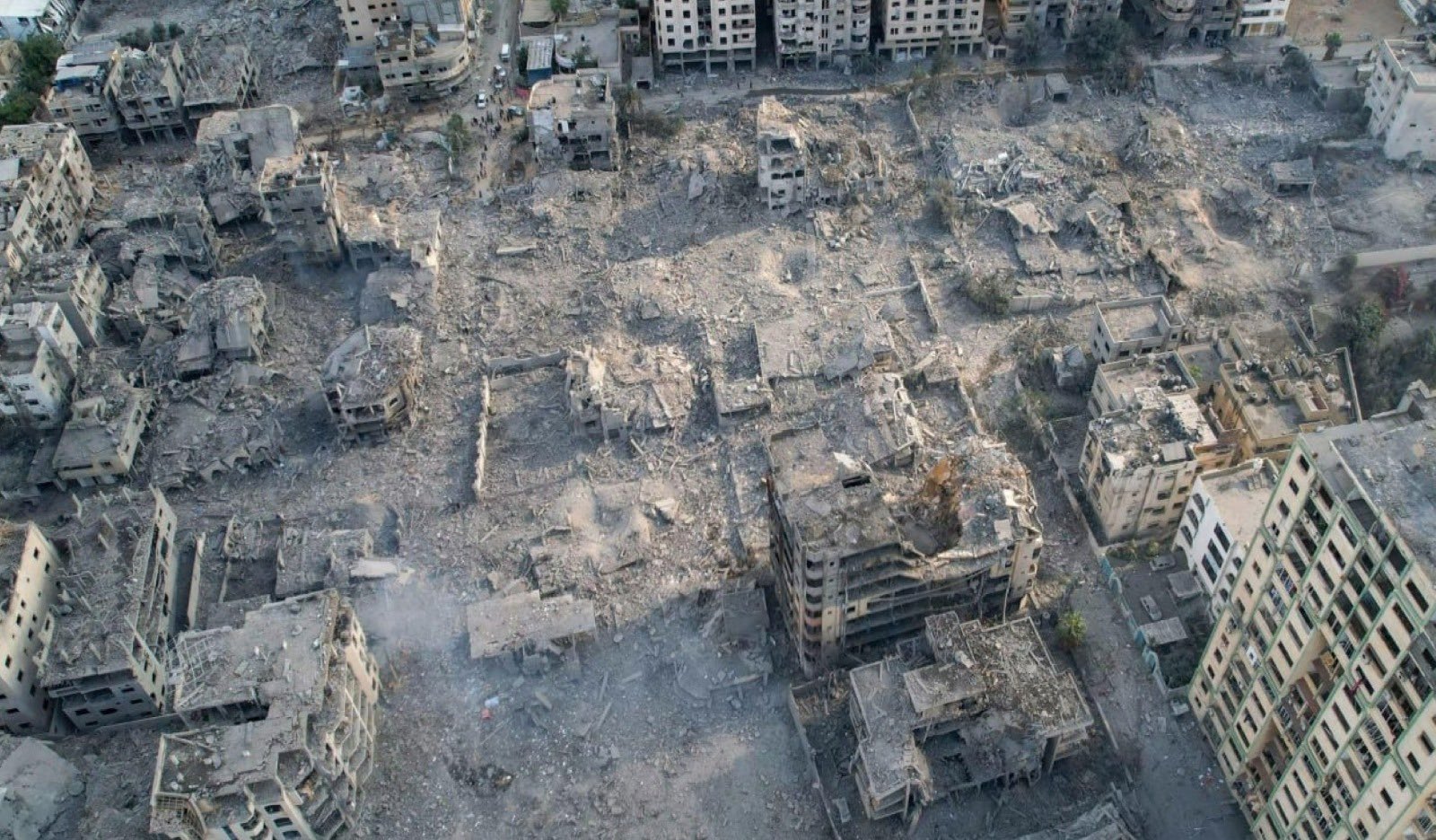

In any case I emailed the Globe Opinion editor to ask "how the decision on where to draw the line on what kind of 'calls for violence' passes muster there and which kind need to be retracted" but I didn't hear back.
Not sure what the lesson is here. Very often there is no lesson in anything.
The great poet Louise Glück has died. Here are four of her poems that I hope you will like as much as I do.
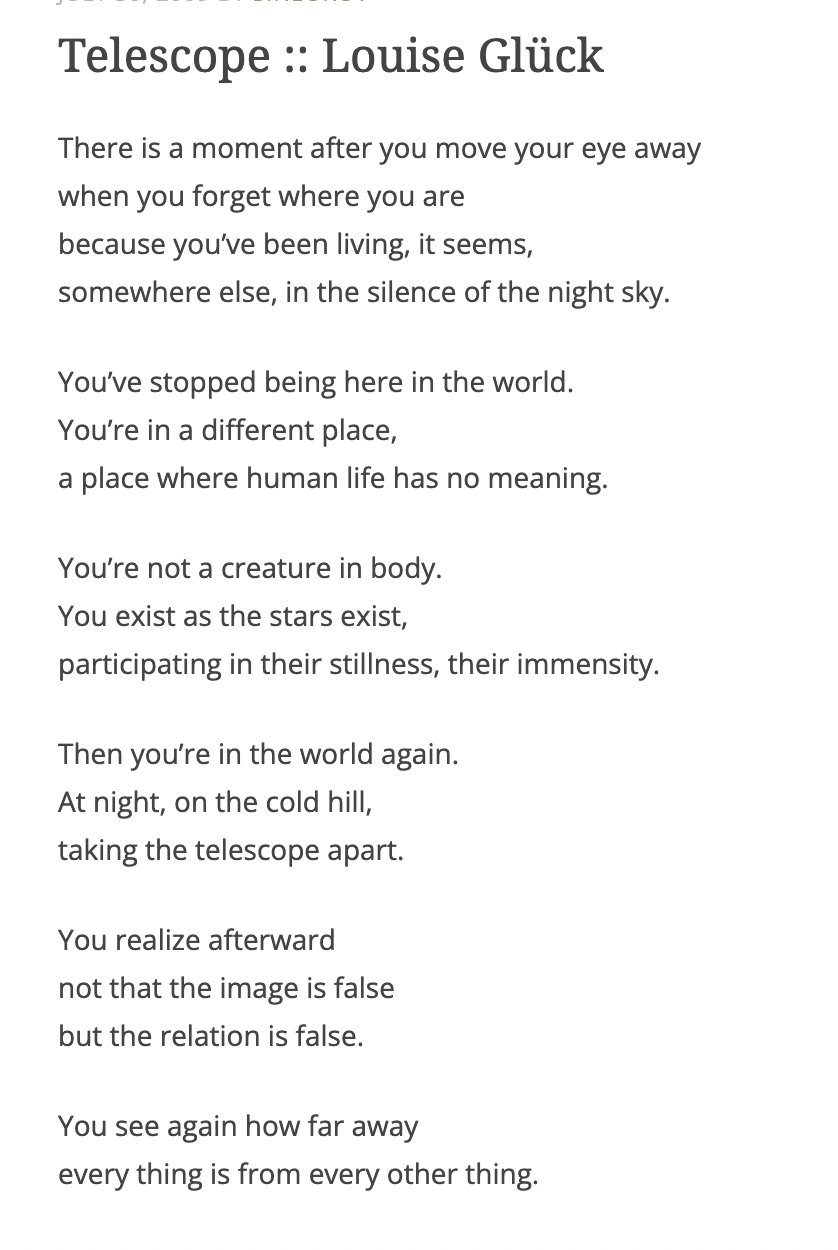
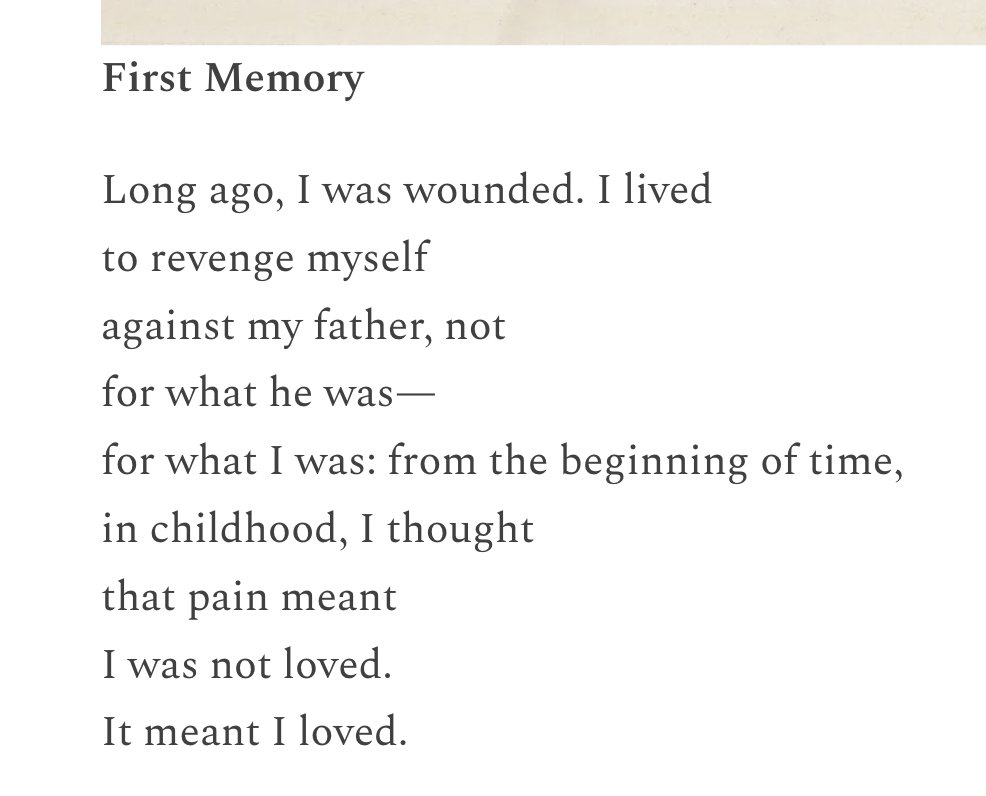
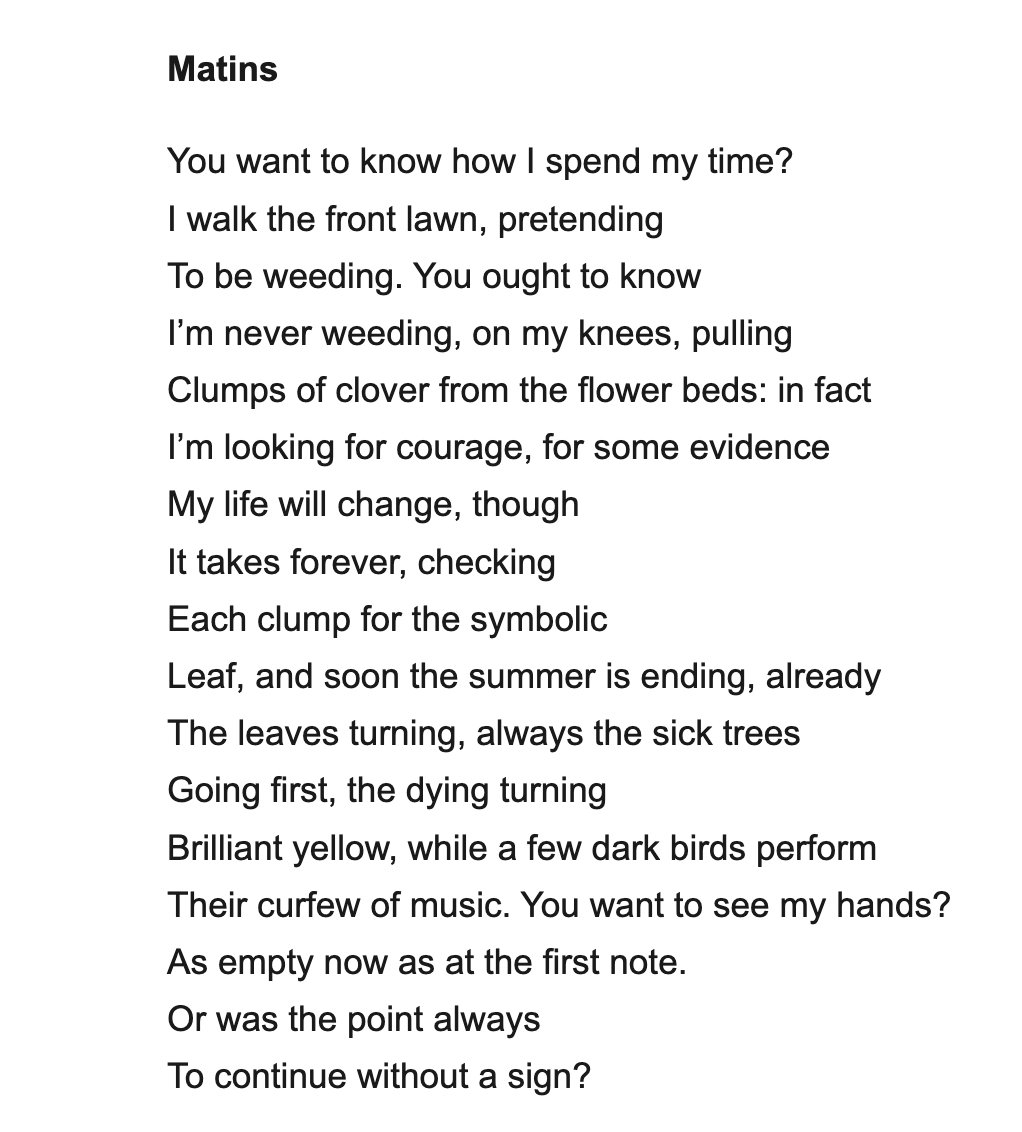
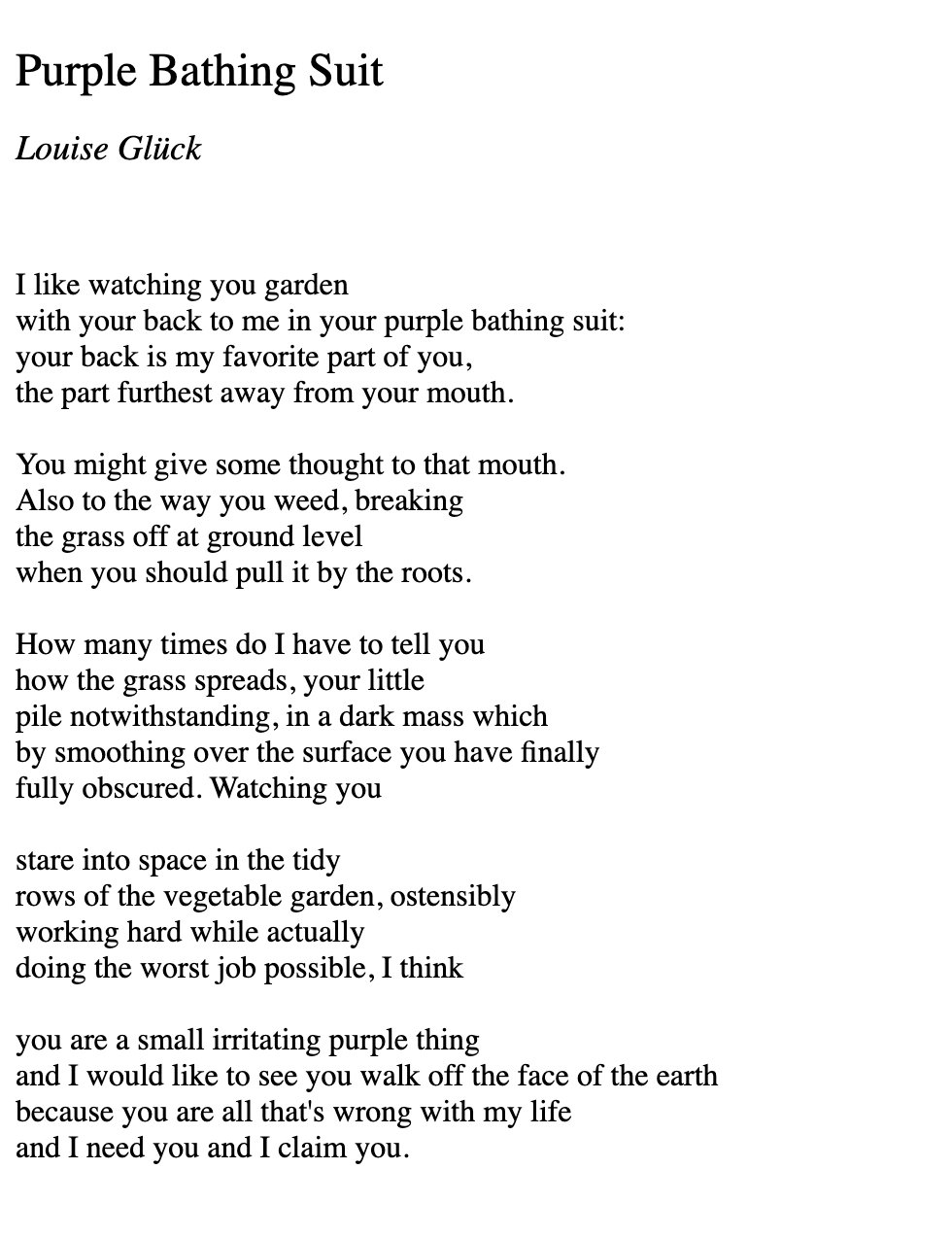
In much less important world events and literary news check out this interview I did with Jesse Raub at the Good Ones newsletter about A Creature Wanting Form if you like. It goes in part like this:
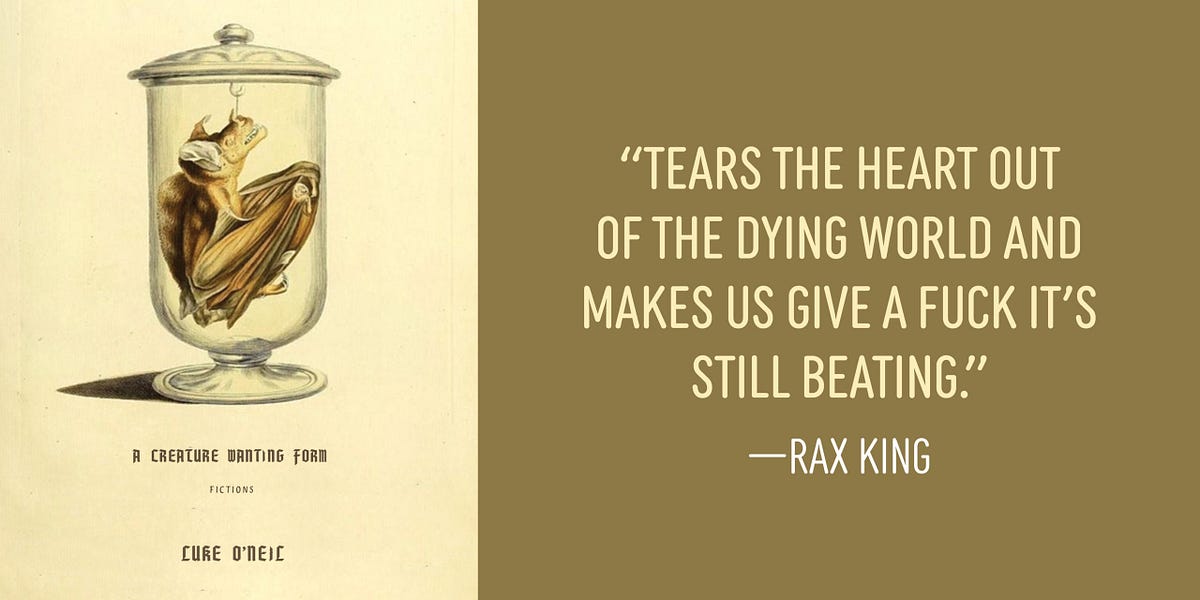
Most of these stories tackle pretty heavy subjects but offer some level of acceptance with the narrator by the end, even if the outcome is dire. How does that emotional endpoint relate to your own personal worldview?
I’m not sure if it’s me deluding myself to convince myself it’s worth going on or me understanding no one wants to read a constant barrage of bleak violence and death. Probably a mix of both. There has to be a final girl in the horror movie sort of thing you know? A glimmer of light when she crawls out of the basement.
I think I’ve said this before but something people always remark upon when they write about my writing or send me notes about this or that piece is they always say there’s a hopefulness to it. Some days I think no no no you are reading it wrong! We are truly living in Hell whether or not you have come to grips with that yet. Then some days I think yes yes that is correct. We all must go on together and remind ourselves of the reasons it’s worth going on.
To be honest though if some of the shit that happens in the book ever happened to me I would probably just lie down. If I get sick or something any time soon and people are talking about how valiantly I fought or whatever that is a lie. I am not going to wage a battle against cancer or war or climate catastrophe or whatever it is I am going to get my ass kicked in.
A lot of these stories are written with an immediacy to the narrator’s voice that makes them feel very real and in the present. How much of yourself do you find ends up in these characters?
Well some of them are just obviously me writing about things that actually happened to me, but that’s maybe like 25% or so. I didn’t set out to write vivid and memorable and distinct characters for the most part anyway though. The focus is sort of supposed to be on the outside forces and systems conspiring against us or crushing us indifferently, and I guess many of the characters react to those things in a kind of aloof way, even while knowing things are horrible. What difference does it make really when confronting the vast power of the ocean if the character is this kind of guy or that kind of guy, you know?
You might also listen to this interview I did with WICN radio about the book and R.E.M.
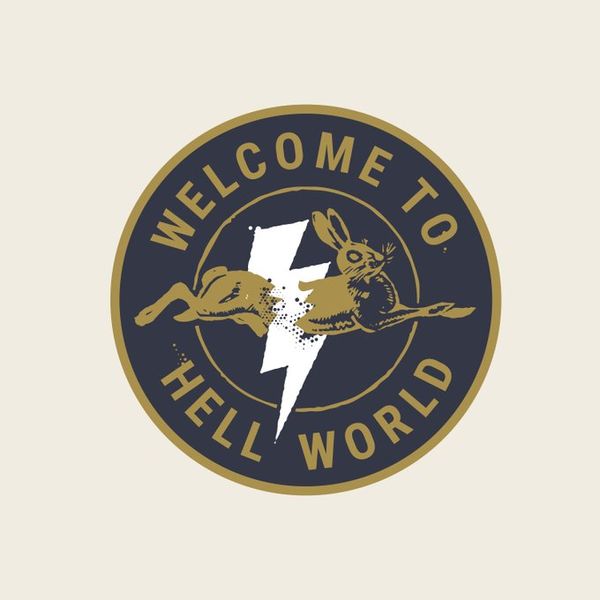
Or this spot I did on our man Charles Star's football podcast where I talked about how much the Patriots fucking suck and other somewhat more important world matters.






